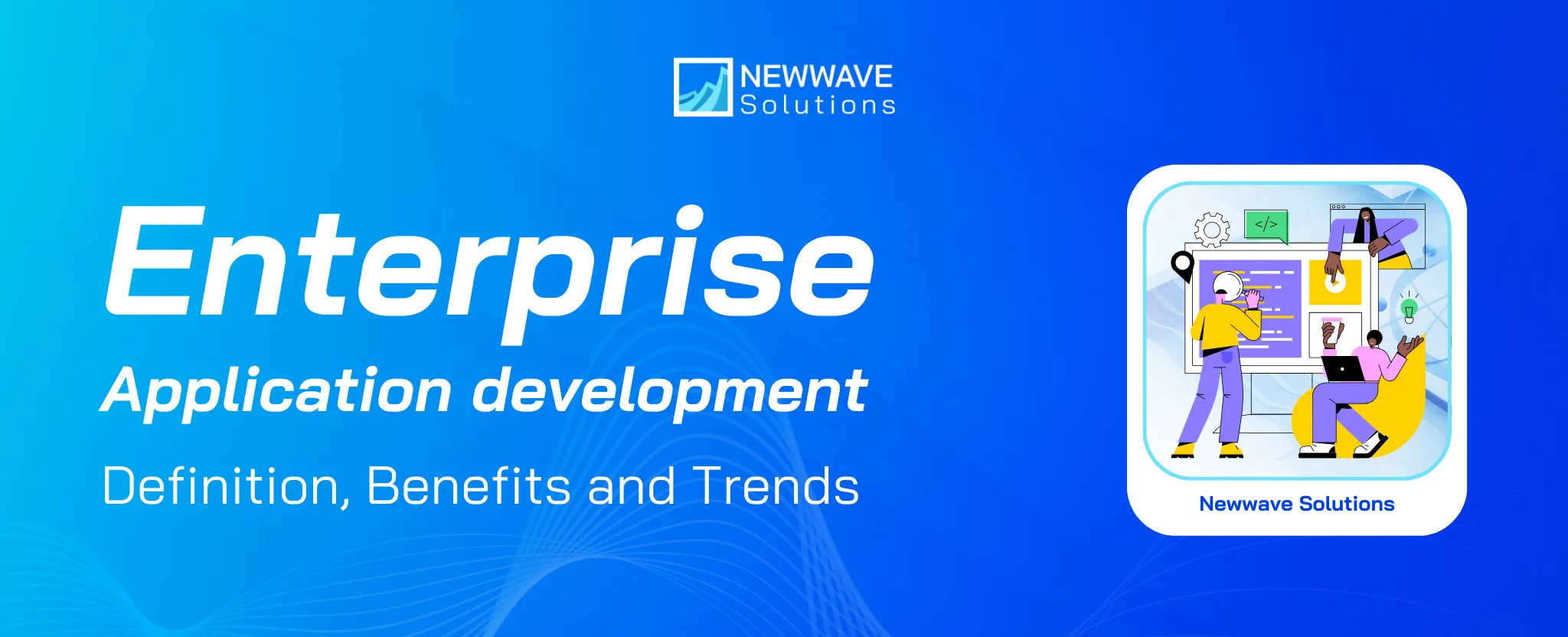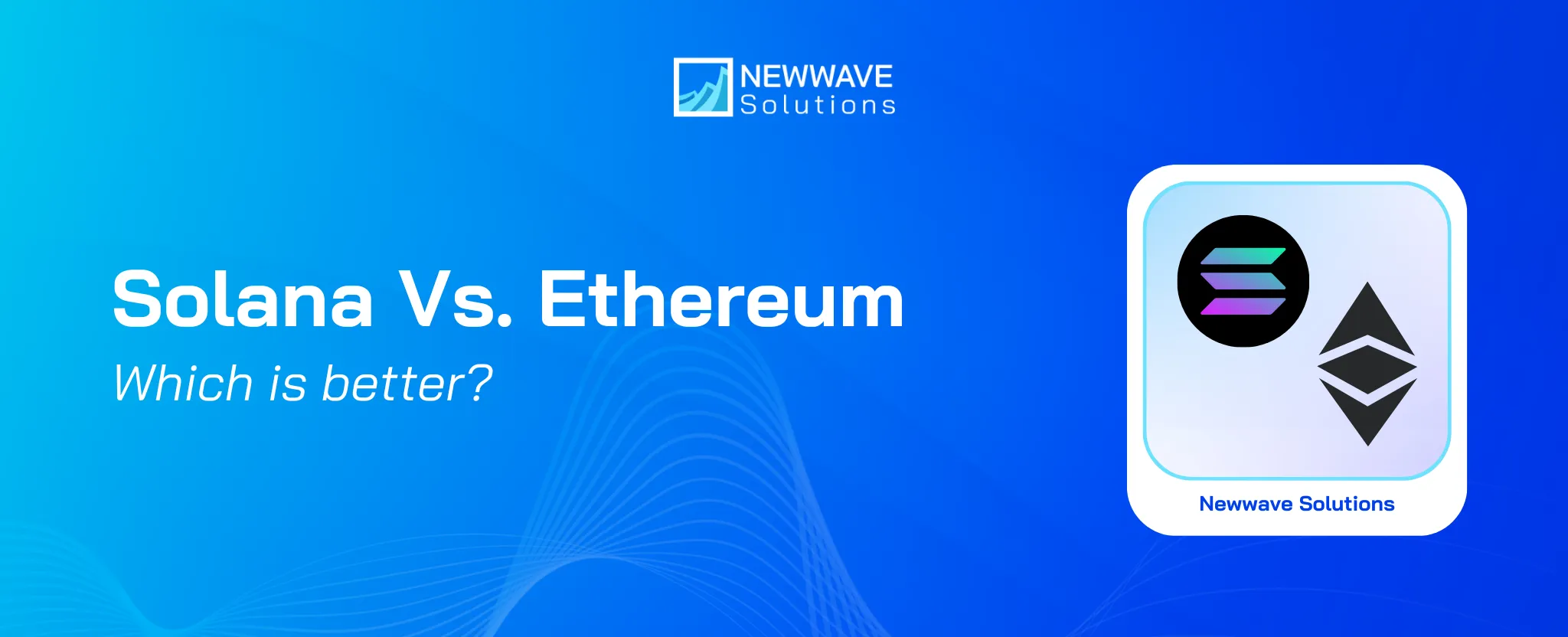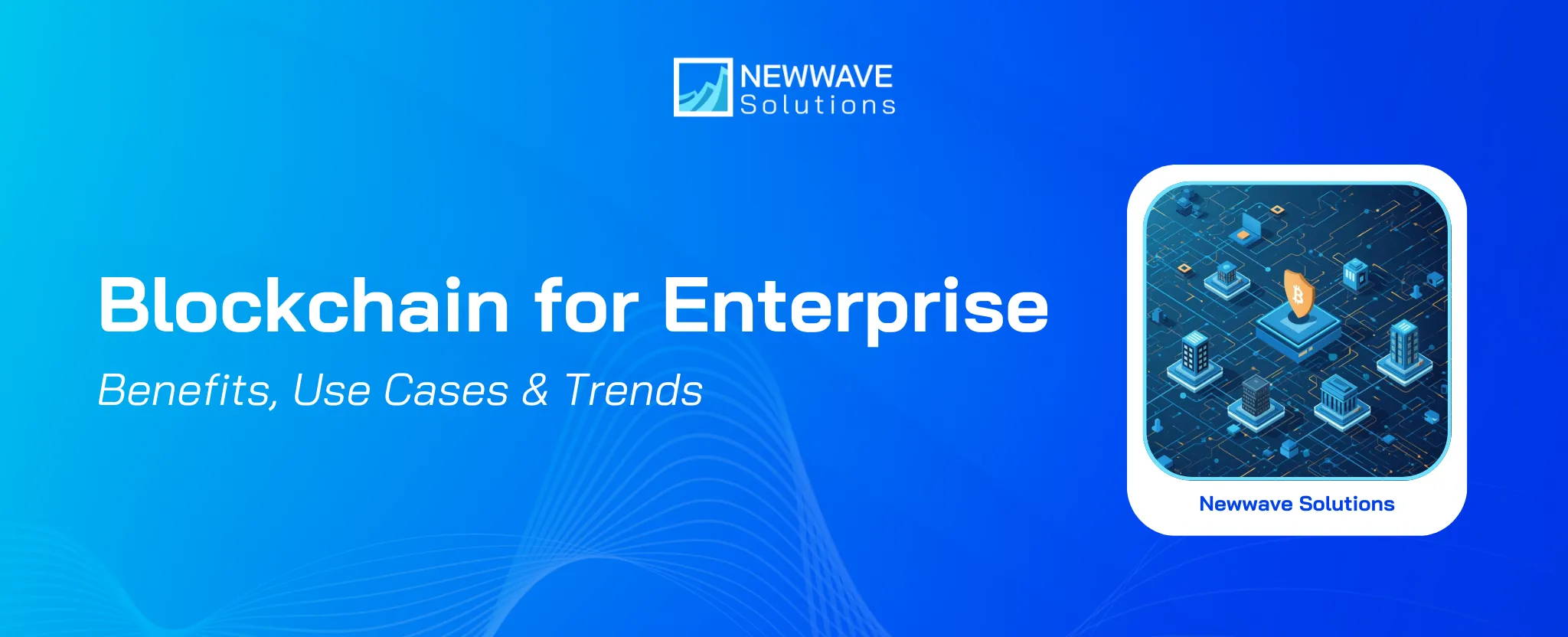Enterprise Application Development Complete Guide: Definition, Benefits and Trends

Enterprise application development has become a critical foundation for modern organizations that need scalable, integrated, and high-performance digital systems to manage complex operations. As businesses grow, manual processes and disconnected tools create data gaps, workflow inefficiencies, and operational risk—and enterprise-grade applications solve this by centralizing information, automating tasks, and enabling real-time decision-making across teams, departments, and global operations.
What is Enterprise Application Development?
Enterprise application development is the process of creating large-scale software systems that support the core operations of an organization. These applications are designed to be robust, secure, scalable, and fully integrated with existing business systems. Unlike small business tools or consumer apps, enterprise applications are engineered to manage mission-critical workflows across multiple teams, departments, and geographic locations.
Unlike outsourced software for small business, enterprise applications must:
- Support thousands of concurrent users
- Handle large datasets and complex transactions
- Maintain strict performance, reliability, and uptime
- Integrate with legacy and third-party systems
- Meet industry-specific compliance standards
- Scale with organizational growth
These applications form the backbone of enterprise digital transformation. They support everything from finance and operations to sales, HR, logistics, customer service, and supply chain management.
So when your business needs Enterprise Application Development?
Organizations typically require enterprise applications when they:
- Manage operations across multiple departments or locations
- Need unified systems to replace manual or fragmented processes
- Rely on accurate, real-time data for decision-making
- Handle large, complex datasets or high transaction volumes
- Manage compliance, governance, or industry-specific regulations
- Want to modernize outdated legacy systems
- Need automation to reduce operational costs
- Require custom functionality unavailable in off-the-shelf software
Enterprise applications are used by enterprises, scaling mid-sized businesses, government organizations, healthcare institutions, logistics companies, and organizations that need structured digital transformation.
Types of Enterprise Application Development
Enterprise application development includes several categories of software, each addressing specific operational needs. Each type of enterprise system plays a unique role within the organization, and together they form a unified digital ecosystem that enables efficiency, transparency, and long-term scalability.
Below is a detailed breakdown of the major types of enterprise applications used across industries:

Customer Relationship Management (CRM) Systems
CRM systems centralize customer-related information and automate the processes associated with sales, marketing, and customer service. They allow businesses to track leads, manage pipelines, monitor customer interactions, personalize engagement, and resolve service issues efficiently.
They are designed to give organizations a complete 360-degree understanding of every customer—improving retention, upselling opportunities, service quality, and revenue forecasting.
Suitable for:
- B2B and B2C sales organizations
- Customer-facing service teams
- Companies managing large customer databases
Example: Salesforce, HubSpot, or custom CRM built using CMR software solutions.
Enterprise Resource Planning (ERP) Platforms
ERP platforms integrate all core business operations into one unified system, enabling organizations to streamline financial management, supply chain operations, procurement, HR tasks, and production planning.
ERP applications eliminate data silos by ensuring every department operates using synchronized, real-time information. This improves transparency, accuracy, and operational efficiency.
Suitable for:
- Manufacturing firms
- Supply chain–heavy businesses
- Multi-department enterprises
Example: SAP, Oracle NetSuite, or custom ERP tools under ERP Development services.
Supply Chain Management (SCM) Applications
SCM systems help organizations coordinate and optimize the movement of goods—from suppliers to warehouses to end customers. These systems enable visibility, automation, and predictive insights across inventory, logistics, procurement, and distribution operations.
A strong SCM application minimizes delays, reduces stockouts, improves supplier performance, and creates a resilient supply chain capable of adapting to disruptions.
Suitable for:
- Ecommerce companies
- Logistics and transportation providers
- Manufacturing and distribution networks
Example: Blue Yonder, Manhattan Associates, or SCM systems built through enterprise applications development.
Human Resource Management (HRM) Systems
HRM applications digitize and automate HR processes across the employee lifecycle. These systems centralize hiring workflows, onboarding, payroll, benefits management, performance reviews, and workforce analytics.
Their goal is to reduce paperwork, improve accuracy, support compliance, and provide a better employee experience through transparent HR operations and self-service tools.
Suitable for:
- Large enterprises
- Fast-growing startups
- HR teams managing complex operations
Example: Workday, BambooHR, or custom HR portals connected to internal systems.
Business Intelligence (BI) and Analytics Applications
BI and analytics tools convert raw enterprise data into actionable insights that support decision-making at every level of the organization. These applications integrate data from ERP, CRM, SCM, HRM, and other systems to generate dashboards, predictive models, and performance analytics.
They help leaders identify trends, evaluate performance, reduce operational risks, and make informed business decisions based on real-time insights rather than guesswork.
Suitable for:
- Data-driven enterprises
- Leadership and management teams
- Companies with large or complex datasets
Example: Power BI, Tableau, Looker, or custom BI dashboards.
Content/Document Management Systems (CMS/DMS)
CMS and DMS systems manage digital content, documents, workflows, approvals, and compliance across an organization. They enforce document governance, secure access permissions, version tracking, and regulatory audits—ensuring all teams use accurate and authorized content.
These systems are essential for industries with heavy document loads or tight compliance requirements.
Suitable for:
- Government agencies
- Healthcare, legal, or financial institutions
- Marketing teams managing large content libraries
Example: SharePoint, Drupal, or custom CMS via CMS development services.
Custom Mission-Critical Applications
Some enterprises require specialized systems that cannot be fulfilled by commercial tools. These mission-critical applications provide highly specific functionality tailored to unique workflows, regulatory environments, or operational models.
They offer deep integration with internal systems, high performance, security hardening, and long-term scalability—allowing businesses to build the exact digital capabilities they need.
Suitable for:
- Banks, insurers, and financial institutions
- Healthcare organizations
- Enterprises with proprietary processes
Example: Claims processing engines, compliance systems, or platforms built under custom enterprise application development.
Benefits of Enterprise Application Development
Enterprise application development gives organizations the foundation to operate at scale, improve efficiency, and respond quickly to market changes. These systems unify people, processes, and data across departments, allowing businesses to work with greater clarity and control. Whether implemented as enterprise-wide platforms or built through custom enterprise solutions, enterprise applications provide long-term strategic value that extends far beyond automation.
Below are the core benefits that explain why enterprises rely heavily on integrated, intelligent, and secure applications:
Streamlined Operations & Efficiency Gains
Enterprise applications automate repetitive tasks, eliminate manual workflows, and reduce dependency on disconnected systems. By centralizing operations into one integrated platform, teams no longer waste time switching between tools or reconciling inconsistent data.
This leads to:
- Faster task execution
- Reduced operational costs
- Fewer errors caused by manual processes
- Streamlined workflows across departments
Enterprise applications improve end-to-end efficiency, allowing teams to focus on high-value work instead of administrative tasks.
Improved Decision-Making Through Real-Time Data & Analytics
Enterprises generate massive amounts of data daily. Without proper systems, this information becomes scattered and unusable. Enterprise-level BI and analytics applications unify data across systems—ERP, CRM, SCM, HRM—into real-time dashboards and insights.
This empowers leaders to:
- Identify operational problems early
- Track performance against strategic KPIs
- Forecast demand, sales, and workload
- Make informed decisions based on accurate data
Real-time analytics become a powerful competitive lever in fast-moving industries.
Enhanced Collaboration Across Departments & Geographies
Enterprise applications eliminate silos by giving all teams access to shared tools, synchronized workflows, and centralized data.
This enables:
- Seamless communication across departments
- Unified information flow between teams
- Better coordination in multi-location or global operations
- Reduced friction during cross-functional projects
Collaboration becomes intuitive and structured because everyone works from the same digital source of truth.
Scalability and Flexibility
Enterprise applications are built to handle significant growth—whether in users, transactions, features, or business complexity. Their architecture supports expanding workloads without compromising performance.
Scalability enables organizations to:
- Add new users, teams, or locations
- Integrate new modules and features
- Support increased data flow and operations
- Adapt to market growth or organizational changes
Flexible enterprise systems ensure long-term viability even as business needs evolve.
Competitive Advantage & Innovation Enablement
Enterprises that rely on integrated, modern applications can innovate faster than competitors. With streamlined workflows, data insights, and automation, they can experiment, iterate, and launch new initiatives with confidence.
Enterprise applications help organizations:
- Digitize core processes
- Reduce time-to-market
- Support agile transformation
- Build technology-driven business models
This builds a strong foundation for continuous innovation and long-term competitiveness.
Improved Security and Compliance
Enterprise applications incorporate advanced security frameworks designed to protect sensitive data at scale. This includes authentication, authorization, encryption, audit logs, and compliance modules tailored to specific industries.
Security and compliance capabilities allow enterprises to:
- Reduce cyber risks
- Protect employee and customer data
- Meet regulatory standards (GDPR, HIPAA, SOC)
- Prevent unauthorized access and data breaches
Security is embedded into the architecture—not added as an afterthought—ensuring systems remain trusted and compliant.
What Are the Challenges of Enterprise Application Development?
Enterprise application development offers enormous value, but it also presents complex challenges due to scale, integration needs, and long-term business demands. Unlike consumer apps or small business tools, enterprise applications require advanced planning, robust architecture, and careful execution to ensure performance, security, and usability. Below are the key challenges enterprises commonly face—and practical ways to address each one effectively.
Integration with Legacy Systems
Legacy systems often operate with outdated technologies, incompatible data formats, and limited API capabilities, making them difficult to integrate with modern enterprise applications. This can lead to delays, increased development costs, and system instability if not handled properly.
How to overcome it?
- Conduct a detailed system audit before development
- Use middleware or integration platforms (ESB, iPaaS) to bridge old and new systems
- Introduce APIs gradually through a phased modernization approach
- Prioritize data mapping and cleansing early in the SDLC (Software Development Life Cycle)
Changing Business Requirements and Scope Creep
Enterprise applications serve many stakeholders, each with evolving needs. As a result, project requirements often expand beyond the original scope, causing delays, rework, and budget overruns.
How to overcome it?
- Use Agile methodology to accommodate iterative changes
- Define clear project goals and success metrics from the start
- Establish strict change management processes
- Maintain open communication between business and technical teams
Scalability and Performance Issues
Enterprise applications must support thousands of concurrent users, large datasets, and complex transactions. Poor architecture decisions can lead to slow performance, downtime, or failure under heavy load.
How to overcome it?
- Use cloud-native technologies and microservices
- Apply load balancing, caching, and performance monitoring tools
- Conduct performance testing early and regularly
- Choose scalable databases and well-structured backend architecture
Security, Compliance & Data Governance
Enterprises handle sensitive internal and customer data, making security breaches devastating. Compliance with regulations (GDPR, HIPAA, PCI-DSS) adds another layer of complexity.
How to overcome it?
- Implement role-based access, encryption, and audit logs
- Follow industry security frameworks (OWASP, NIST)
- Conduct regular penetration testing and compliance reviews
- Design data governance policies from the beginning
User Adoption and Change Management
Even the most advanced application will fail if employees find it confusing or difficult to use. Resistance to adopting new systems is common, especially in large organizations.
How to overcome it?
- Involve users early through workshops and user testing
- Provide training sessions, documentation, and support materials
- Build intuitive interfaces based on UX best practices
- Roll out the system gradually rather than all at once
High Cost and Resource Investment
Enterprise applications require significant development time, specialized engineers, design expertise, and ongoing maintenance. This can strain budgets if not planned properly.
How to overcome it?
- Use offshore outsourcing or hybrid teams to optimize costs
- Prioritize features using MVP development strategy
- Adopt modular development to spread costs over phases
- Reuse components and design systems to reduce repetitive work
Maintaining and Evolving the Application
Enterprise applications are long-term assets. After deployment, they require continuous updates, bug fixes, feature enhancements, and security improvements. Without proper planning, technical debt accumulates and slows future development.
How to overcome it?
- Establish a dedicated maintenance and support team
- Use version control, automated testing, and CI/CD pipelines
- Conduct regular system audits and refactoring cycles
- Maintain detailed documentation for future scalability
How to Get the Best Enterprise Application Development?
Develop a successful enterprise application requires a balance of strategic planning, technical expertise, and strong execution. Because these systems impact every core function of an organization, development teams must understand business goals, user needs, data flows, and long-term scalability from the start. The following critical factors and step-by-step approach help organizations build enterprise applications that are stable, secure, and ready for continuous growth.
Critical Factors
Building an enterprise application demands thoughtful planning across architecture, workflows, data, and user experience. Each decision made early in the project has a long-term impact on scalability, performance, and total cost of ownership. A strong foundation ensures the system remains reliable and adaptable as the organization evolves.
To achieve this, organizations should anchor development around the following essentials:
- Clear business objectives & defined user needs: Ensure you understand what business problems the application must solve and which users will be interacting with it.
- Scalable, flexible architecture: The application must be built to support growth in users, data, transactions and to adapt to new business requirements.
- Strong integration capability: The system should connect seamlessly with existing enterprise systems (ERP, CRM, supply chain, data warehouses) through APIs and middleware.
- Security, compliance & data governance: Since enterprise apps handle mission-critical data, you must build in encryption, role-based access, audits, and compliance frameworks from day one.
- User experience (UX) and adoption focus: Even internal enterprise tools must be designed with usability in mind to drive adoption, reduce training load, and improve productivity.
- Performance and reliability: The application must respond quickly and consistently under heavy load, with high availability and minimal downtime.
- Modular and maintainable codebase: Using modular design (e.g., microservices) and well-defined layers improves maintainability and supports future enhancements.
- Ongoing support, monitoring & evolution: Launch is not the end. The app must be monitored, updated, and adapted to new conditions, user needs and technologies.
These factors guide the application’s design, performance, scalability, and usability, ensuring alignment with both current and future business needs.
Step-by-Step Guide
Enterprise application development follows a structured lifecycle to ensure clarity, quality, and stability at every stage. A well-planned approach reduces risks, improves communication, and provides predictable outcomes—especially important for large, multi-department systems.
A complete enterprise application development process typically includes:
- Discovery and requirements analysis: Engage stakeholders, map workflows, identify user needs, document functional and non-functional requirements.
- Architecture and technical planning: Select technologies, define system structure, plan integrations, set performance and security guidelines.
- UX/UI design and prototyping: Develop user journeys, wireframes, prototypes, and interface designs focused on clarity and usability.
- Development and integration: Implement backend and frontend code, create APIs, integrate with internal and external systems.
- Quality assurance and testing: Conduct functional, performance, security, and integration testing to ensure reliability at scale.
- Deployment and user training: Prepare production environments, onboard users, provide documentation, and support initial adoption.
- Maintenance and continuous improvement: Monitor system health, fix issues, release updates, optimize performance, and expand features over time.
Choosing the right development partner is just as important as following the proper steps. Many organizations discover that outsourcing to a specialized IT company provides greater flexibility, cost efficiency, and access to a broader talent pool—especially for enterprise-level projects requiring expertise in architecture, integrations, and security. Collaborating with an experienced outsource IT team allows enterprises to accelerate delivery, reduce development risks, and scale resources according to project demands. This is particularly valuable for companies facing talent shortages, modernization challenges, or aggressive timelines, making outsourced enterprise application development a strategic and reliable choice.
Future of Enterprise Application Development

Enterprise application development is rapidly evolving, driven by emerging technologies solutions and shifting business demands. Organizations moving beyond traditional on-premise systems to agile, data-driven platforms are setting new standards. The near future will be characterized by accelerated adoption of artificial intelligence (AI) and machine learning (ML), widespread use of low-code platforms, cloud-native architectures, and increased attention on security and integration.
Here are the key trends shaping this evolution:
- AI & ML-Driven Decision Making: Applications will increasingly embed predictive analytics, automated workflows, and natural-language interaction to optimize business outcomes.
- Low-Code / No-Code Platforms: Empowering citizen developers and speeding up delivery, these platforms lower dependency on traditional development for many internal enterprise apps.
- Cloud-Native and Microservices Architecture: Enterprises are shifting to microservices, containers, and hybrid/multi-cloud models to improve scalability, resilience, and cost-efficiency.
- Enhanced Security, Zero-Trust & Compliance: With increasing threats and regulatory expectations, enterprise applications must embed security, identity governance, and auditability from the ground up.
- Mobile-First & Distributed Workforce Support: As work becomes more remote and mobile, enterprise systems must deliver across devices, locations and real-time collaboration scenarios.
- Integration with IoT, Edge & Real-Time Data: Data generated from connected devices, sensors and edge platforms will be integrated into enterprise apps to drive agility, monitoring and automation.
These trends indicate that the next generation of enterprise applications will not just manage workflows—they will continuously adapt, learn and respond to business changes. Organizations that recognize these shifts and build future-ready architecture today will gain a competitive edge in agility, insight and operational excellence.
How Newwave Solutions Get You in Enterprise Application Development?
Enterprise application development is one of the most important investments a company can make to strengthen operations, improve decision-making, and support long-term growth. As organizations scale, the need for integrated systems, secure data management, and high-performing digital workflows becomes more urgent—and the right development partner plays a decisive role in achieving these goals. Choosing a team that understands enterprise complexity, follows a disciplined SDLC, and delivers solutions built for performance and scalability will determine how well your system adapts to evolving business needs.
Newwave Solutions offers this combination of expertise, discipline, and cost efficiency through a Vietnam-based engineering powerhouse. Our team supports organizations across industries with enterprise-grade solutions, including ERP platforms, CRM tools, CMS systems, BI dashboards, and fully custom internal applications. With strong capabilities in ERP, CMS, CMR software solutions, and full-cycle software development services, we build systems designed to improve operations and accelerate growth.
Why Choose Newwave Solutions for your Enterprise Application Development?
- Deep expertise in enterprise systems: We design and develop ERP, CRM, SCM, HRM, analytics, and custom internal platforms that align with your operational needs.
- Cost-efficient and high-quality delivery: Leveraging software outsourcing Vietnam, we provide skilled engineers and architects at competitive global pricing without sacrificing quality.
- Modern architecture and scalable technology: Cloud-native stacks, microservices, API-driven integrations, advanced security, and flexible infrastructure support long-term evolution.
- Fast validation through MVP development: We help enterprises test ideas quickly with lean prototypes and extend them into full-scale systems.
- End-to-end SDLC execution: From discovery to design, engineering, testing, deployment, and ongoing optimization, we manage every phase with transparency and precision.
- Tailored solutions for real workflows: We create systems that match your existing processes while improving efficiency, visibility, and automation.
If you’re ready to modernize your operations or build a scalable enterprise platform, Newwave Solutions is ready to help.
Let’s create an enterprise application that supports your growth today—and your ambitions tomorrow.
To Quang Duy is the CEO of Newwave Solutions, a leading Vietnamese software company. He is recognized as a standout technology consultant. Connect with him on LinkedIn and Twitter.

Read More Guides
Get stories in your inbox twice a month.
Let’s Connect
Let us know what you need, and out professionals will collaborate with you to find a solution that enables growth.




Leave a Reply